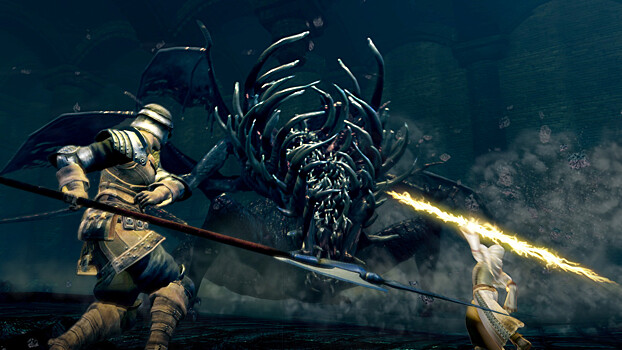What is soul: explaining the genre for dummies
For many gamers, the term soullike refers to a specific game genre – or even a game design philosophy. However, for the uninitiated, this word means absolutely nothing, because it cannot be understood without context. The portal makeuseof.com explained what soullike is and what characteristic features games of this genre have.

The birth of the genre
The origins of the soullike sub-genre lie in the 2009 release Demon's Souls. Japanese studio FromSoftware wanted the project to offer the same challenge as older video games, which is why it intentionally made the passage difficult. Furthermore, difficulty is also expressed in many different aspects: from the abundant number of opponents to the traps that can kill the player at any time.
And the idea of Demon's Souls was developed by the original Dark Souls in 2011. The authors significantly improved the gameplay formula: a solid world consisting of interconnected locations that motivates the player Play study the environment and learn from mistakes. It is this vision that became the basis for current ideas about the soul.
Characteristics of the soul
Dark fantasy and environmental storytelling
Games in this genre are often set in dark kingdoms, ravaged by war, disease or other disasters. And the player in turn finds himself in this world with absolutely no knowledge of its history. Soulslike projects are not in the hands of the user: he himself must figure out the details of the plot and lore of the setting.
Usually, games with soul don't tell the story in a simple way. Details are often hidden in item descriptions, dialogue, diaries, or other artifacts. The idea is that players must earn this information – just like defeating bosses or new equipment. At the same time, no one bothers you to skip the plot and play difficult battles: thanks to this, soullike sometimes attracts completely different audiences.
High difficulty and diverse gameplay
Soulslike games typically only offer one difficulty level—there is no “easy” or “normal” difficulty. Therefore, the player's success depends on how quickly he learns through trial and error. To win, you need to remember your opponent's behavior, understand when to block and when to attack.
The key point of strategy here is choosing your own playing style. Most projects in this genre (with the possible exception of Sekiro) offer players to develop their character in various ways, but first they must understand which way will be most comfortable.
Check point
Demon's Souls introduced another important concept to the genre – the “campfire”. Checkpoints give players a chance to catch their breath. They help you maintain progress, fully heal your health, and replenish your healing potion supply. Additionally, you can only upgrade and repair equipment at these points.
However, resting comes at a price: after saving, all killed enemies, not counting bosses, are reborn. This means that control points have a tactical nuance. After death, the character appears at the last fire where he rests – if you do not save for a long time, then a random error can set the player back a long way. Not to mention the fact that the accumulated amount needed for pumping remains in the dead place. You can go back to get it… But if you die again on the way, the lost “souls” are lost forever.





Leave a Reply